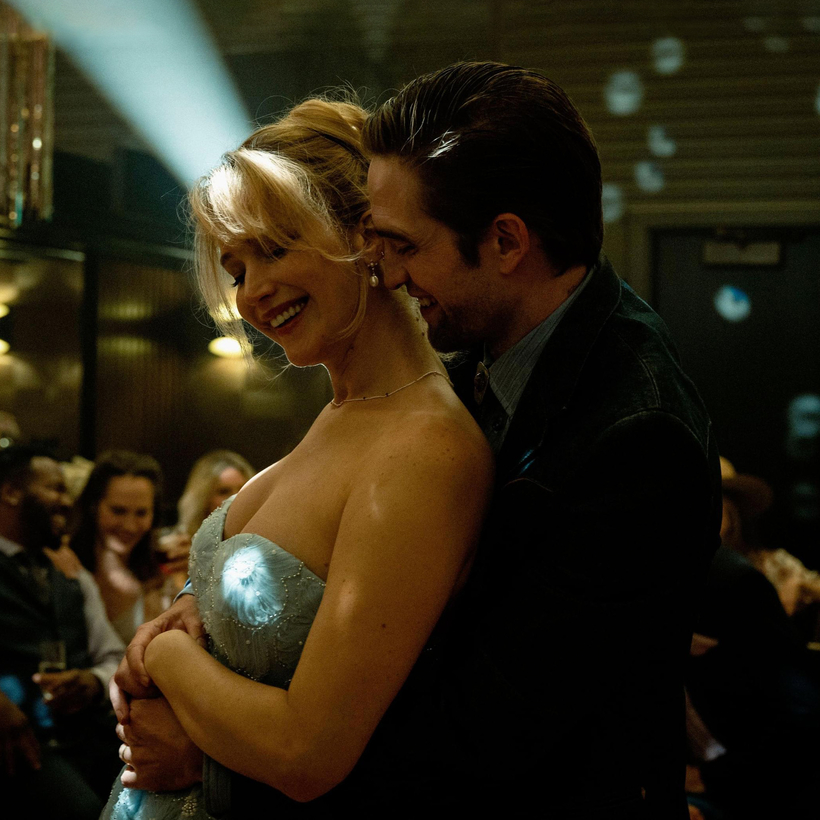Midway through the director Lynne Ramsay’s adaptation of the Ariana Harwicz novel Die, My Love, the protagonist, a deeply unhappy new mother played by Jennifer Lawrence, crashes through a sliding glass door while the children’s song “Apples and Bananas” blares in the background. It’s a glittering, brutal moment of the film, produced by Martin Scorsese and co-starring Robert Pattinson, which opened in theaters yesterday. The soundtrack aside, the scene comes directly from the book.
An Argentinean author, screenwriter, and playwright, Harwicz has written five novels, four of which have been translated into English. Her latest, Unfit, came out last month.
Though Harwicz chooses not to speak publicly about her private life, one personal choice is evident throughout her work: her writing in Spanish—and, thanks to her translators, in English—is clearly influenced by French. Raised in a Jewish family in Buenos Aires, she moved to Paris in 1997 to study at the University of Paris VII, then at the Sorbonne. She and her partner, the Argentinean writer and translator Edgardo Scott, still live there today. With language, as Harwicz explained in a recent video call, she “tries to be as open as possible, so one can get into the other without fear.”

This openness is especially evident in Die, My Love, her first book, published in 2012. Set in rural France, it plunges readers into the mind of a nameless new mother who is rapidly unraveling. Even when its heroine yearns to die, the text itself remains unusually, frantically alive. Harwicz amplifies her linguistic fearlessness into a general sense of abandon: her narrator isn’t afraid of pain, humiliation, or even death.
When watching Ramsay’s adaptation, Harwicz felt that the director had “turned up the volume,” as if the story “were a punk record.” But the novel feels more punk than the movie does. Ramsay gives Die, My Love a conventionally paced narrative, losing some of the book’s freneticism. Harwicz was never interested in writing something appealing; instead, her focus was on liberty and violence. All the narrator wants is to break free of her stifling life, whether that’s through sex, through wallowing in misery (“I don’t like antidepression,” she says), or by smashing her body through glass.
“I wasn’t that young, but I wrote as if I were,” Harwicz says about writing the novel at the age of 35. “My work now is a bit darker, maybe—more nihilistic, or more skeptical.”

Although it’s hard to believe, Unfit, translated by Jessie Mendez Sayer, is much more intense than Die, My Love. Its protagonist, Lisa, an Argentinean migrant living in France, has left her husband—a character whose sanity we soon learn to question—and lost custody of her twin sons. To get them back, she burns down her in-laws’ barn and kidnaps her children. What follows is a road odyssey that veers wildly between tenderness and terror, dreamlike unreality and an absolute sense of imminent, awful consequences.
It’s impossible not to want Lisa to break free from her old life; it’s equally impossible to want her sons to stay with her. “I don’t know who [the twins] would be safe with,” Harwicz tells me. The reader can sense that, and it’s agonizing.
“I would never permit myself to do one single thing Lisa does,” Harwicz says. She feels the same way about the protagonists of her other books. And yet, she adds, “I love them. I venerate them.” The characters she creates “don’t have a plan B. They’ll die for what they want or believe.” As such, they represent unlimited possibilities—something as exhilarating as it is terrifying. And, really, what could be more punk than that?
Die My Love is currently playing in theaters
Lily Meyer is a translator, critic, and the author of the novels Short War and the forthcoming The End of Romance
